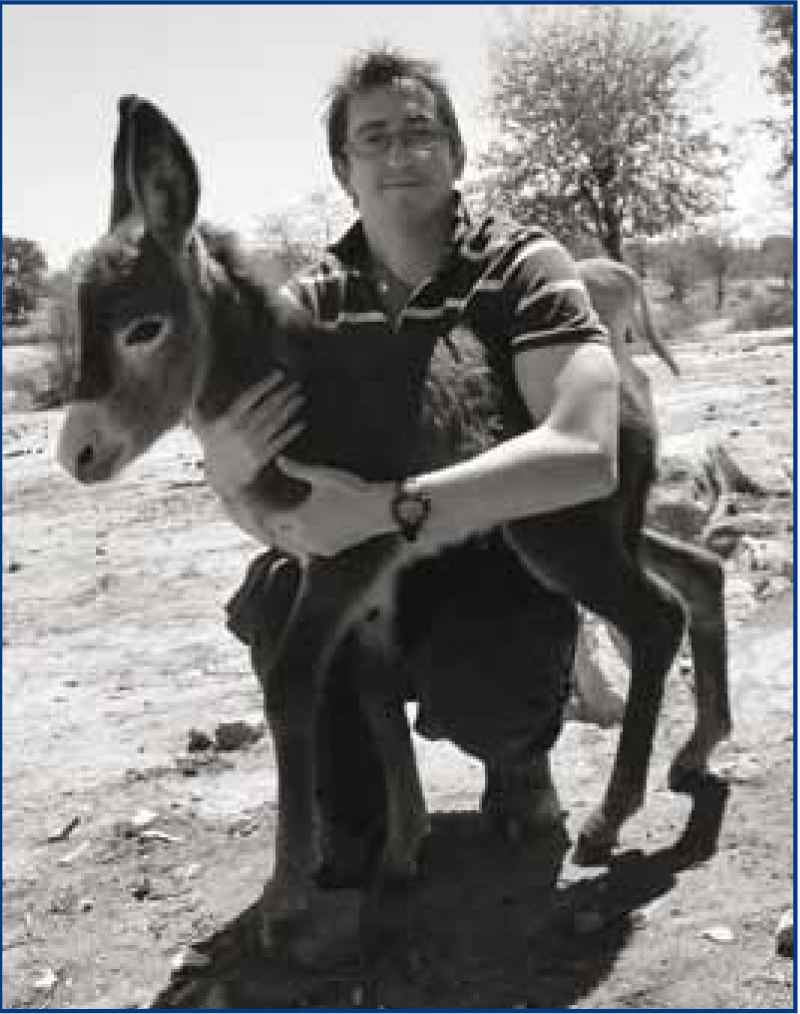
The relationship between humans and animals is essential to millions of people around the world who depend on their animals for an income and their survival, but a combination of poverty and necessity leads to poor animal health and welfare.
SPANA has been caring for the world's working animals since 1923, founded by Kate Hosali and her daughter Nina, after they witnessed the mistreatment of animals on their travels through North Africa. They realized much of the suffering was due to the extreme poverty of the animal owners, lack of medicines and education, and so set up a service to help these animals. SPANA works in poor communities around the world, where animals are relied on to carry goods to markets, plough fields, fetch water and transport people. We believe that by ensuring animals are healthy and well cared for, we can also help those families and communities that rely on them for their livelihoods. SPANA has permanent centres in eight countries, with 22 mobile clinics operating worldwide. Our outreach and emergency programme has funded operations in more than 25 countries over the years. SPANA aims to improve the health and welfare of animals through three main areas of work: veterinary care, veterinary training and education.
In 2010, SPANA treated over 380 000 animals worldwide, more than 1000 animals every day. SPANA provided appropriate and effective veterinary care from our centres and mobile clinics to a wide range of animals (including donkeys, mules, horses, camels and livestock). Our vets and animal health assistants regularly treat diseases seen infrequently or never at all in the UK, such as tetanus, African horse sickness, epizootic lymphangitis and trypanosomiasis. Not only do we treat the sick and injured, but we also carry out preventative strategies such as vaccination campaigns and strategic deworming to ensure animals remain healthy.
Our second area of work is veterinary training. Training and continued professional development (CPD) is essential so that our staff have up to date skills and expertise. SPANA staff aim to set the standard nationally in the field of veterinary care, which in turn improves the advice and skills that they can pass onto other professionals within a country. We are in a unique position to provide valuable practical training placements to undergraduate students from veterinary universities within our countries of operation. SPANA also provides CPD to government and private veterinarians aimed at improving the level of skill and expertise within the veterinary profession.
The third area SPANA focuses on is education. SPANA works to change the knowledge, attitudes and behaviour of animal owners and users. Our education programmes aim to achieve long-term changes in animal owner's behavioural practices. We do this using community awareness enhancement programmes and participatory workshops. SPANA's initiatives working with local service providers (traditional shoe, harness and cart makers) aim to improve the quality of service provided and therefore improve welfare by the modification and refining of local techniques. SPANA also has a children's education programme, educating the next generation of animal owners. Our programme works with school children to encourage positive attitudes and empathy towards animals, which in turn should lead to positive behavioural practices.
SPANA also responds to emergencies and disasters worldwide. We provide both short-term interventions aimed at providing immediate relief, and more long-term solutions to lessen the impact and effect of disasters on animal health. This year we have been involved in emergency operations in Kenya, Mongolia and Sudan.
